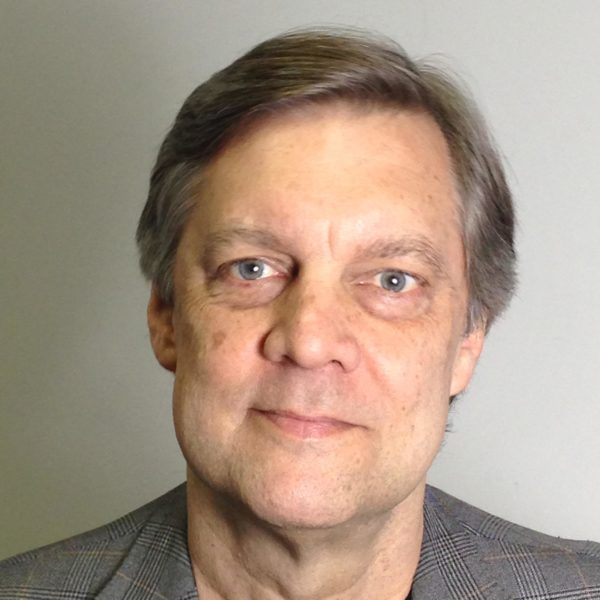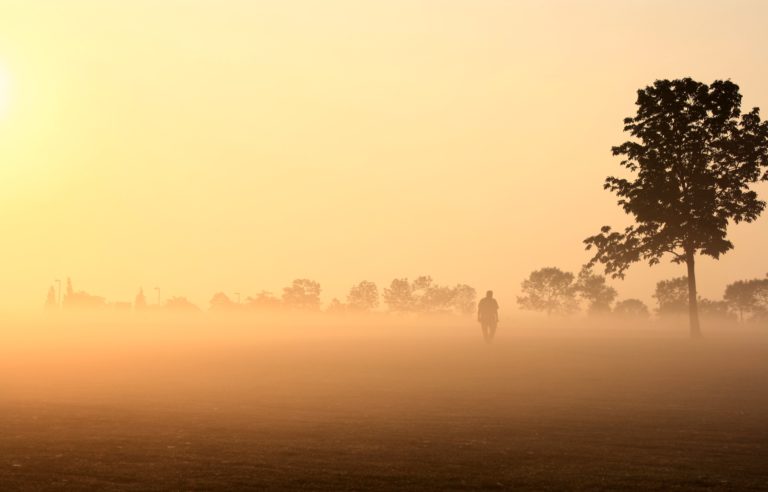Taking to the Road for One America
Something unusual happened two weeks ago in Waynesville, Ohio, at the conclusion of our most recent Better Angels weekend-long gathering. The 15 area residents who had participated — seven conservative-leaning and pro-Trump and eight liberal-leaning and anti-Trump — said in a joint public statement:
“We found that we are less different from one another, and less hostile to one another, than the pundits in the media typically say we are.
A number of us on both sides began our meeting believing that the other side could not be dealt with on the basis of rational thought. We say unanimously that our experience of talking with, rather than at or about, each other caused us to abandon that belief. We say unanimously that real people are more complicated and appealing than the stereotypes we have of them.
In this meeting, we did not change our views on issues. But we did change our views of each other. And surely, in this time of extreme public rancor and mistrust, this change is a good thing for us and for the land we all love.”
This out-of-the-ordinary result and some others like it — including the strong feelings on this issue expressed by so many in recent weeks and the 55 leaders who’ve contacted us recently saying that they want to volunteer to help bring Better Angels to their communities — tells me that “something’s happening” in our country.
What’s emerging, I believe, is the idea that we need to come together as a country. It’s the belief that we can’t be two politically separate nations, each of which despises the other, but instead must be “one America.” Such a societal change cannot be willed into existence by any leader or faction. People like us can’t create such a thing; we can only discover it and, if we’re aware and capable, help to give it direction.
That’s what I believe Better Angels is doing in 2017. And it’s why I wake up these days feeling so good about this work — feeling more confident than I’ve felt in years that we’re doing the right thing for our country, at the right time.
“One America”
Our current flagship initiative is called “One America.” Its goal is a critical mass of Americans working for depolarization.
Its program is to bring together conservatives who support the Trump administration and liberals who oppose it to clarify disagreements, reduce rancor and stereotyped thinking, and search for common ground.
Its message is that we are one nation.
Its call to action is that we can all become citizen-leaders working for what our Constitution calls “a more perfect Union.”
Its strategy is to work in and through the institutions of civil society to find and equip hundreds and ultimately thousands of leaders who in turn can reach millions of Americans with our program, message, and call to action.
Its tools are a portfolio of three carefully tested workshops, a two-month national bus tour, documentary films, podcasts, partnerships with key organizations, and a program of leadership recruitment and development.
Three “One America” Workshops
William Doherty of the University of Minnesota is the most skilled person I know when it comes to designing and leading meetings — particularly meetings on controversial topics involving people who don’t agree and likely don’t trust each other. We wouldn’t be where we are today with Better Angels without Bill’s remarkable leadership and his deep commitment to the work. With Bill in the lead, we’ve designed and tested a portfolio of three Better Angels community workshops, which we’re now ready to take on the road:
- The Weekend Gathering – a “deep dive” experience involving about 20 participants (half red, half blue) which starts over dinner on Friday and ends on Sunday afternoon, involves 13 hours of intensive cross-philosophy engagement, and produces, according to the evaluation data we’ve collected to date, strong reductions of what scholars call affective polarization, which is the belief that my political adversaries are not simply misguided, but are also bad people.
- The 2½ Hour Gathering – a shorter, easier-to-attend and easier-to-lead version of the weekend gathering that, according to our evaluation data, also produces significant reductions (though not as large as those from the weekend gatherings) in affective polarization.
A typical comment from a weekend gathering: “We need to continue working together.”
A typical comment from a 2½ hour gathering: “This kind of thing should happen all over the country.”
- The Skills Workshop – a two-hour gathering for any number of participants in which individuals can learn and practice 18 evidence-based skills for talking with someone you care about who differs from you politically, with the objectives of understanding the other person accurately, being accurately understood yourself, and discovering some common ground. (Note: A Rasmussen poll finds that 40 percent of U.S. voters say that the recent election has caused damage to a close personal relationship.)
The “One America” Bus Tour
The idea of a bus tour began as a whimsy — just a way of wishing that we could “get out there” to connect face-to-face with as many people as possible. But then it began to take shape as an actual idea that is economical (we sleep on the bus) and practical (we can go anywhere) as well as poetic (bus travel is a great American tradition) and romantic (we’re saying hello to our country).
So this summer a number of us are going to get on a bus, taking one or more of the workshops described above to about 30 U.S. towns and cities. We’ll begin the tour on the nation’s birthday, with a July 4 picnic and concert in Waynesville, Ohio, near Cincinnati, and conclude the tour’s first leg in the nation’s birthplace, in Philadelphia on July 24. We’ll begin the second leg right after Labor Day in Minneapolis, near the mouth of the Mississippi River, and wind our way south for the next two weeks, with plans to conclude the tour on September 21 in Austin, Texas.
Our main activities during these weeks will be running the community workshops; learning about the communities we visit; engaging local media and community leaders; identifying prospective new leaders; providing educational resources and follow-up networking opportunities to these emerging leaders; engaging with leaders, celebrities, and everyday citizens who decide to “get on the bus” with us for an hour or a day or two; and producing a series of podcasts and videos documenting and advancing the goals of the tour.
Want to join us? Our tagline for the tour is “Get on the bus!”
Scaling “One America”
We know that just driving around the country for several months doing these workshops — even if that results in lots of publicity and a documentary film or two — isn’t enough. In fact, it’s not nearly enough, because in this highly polarized land of more than 300 million souls, we three or four workshop facilitators, on our own, will never be able to reach enough people to create meaningful social change. So what’s the plan?
The plan is to work with libraries and national civic groups to purpose already-in-place delivery systems for the “One America” program and train hundreds of members of those partner groups to carry out that program in towns, cities, and rural areas in all 50 states. Based on feedback so far, we believe that we can do it. We have a go-ahead for a pilot with one library system and strong interest from another and, thanks to Peter Yarrow, we’ll soon make a presentation to one of the nation’s largest and best-known chapter-based civic associations.
Up to now we’ve been creating and testing the program. In the next phase — this summer, on the road — we’ll seek to build a track record of success in 30 or so communities, bring some national attention to the initiative, and (arguably most importantly) find hundreds and perhaps thousands of Americans who care deeply about supporting this initiative. Starting in early 2018, we and our partners will activate a nationwide infrastructure permitting a large team of trained, supported leaders to take the “One America” idea to every part of the country.
To be honest, when we began with one meeting in one town in Ohio three weeks after the election, we didn’t really know what we were building. What seemed important at the time was to do something; knowing where it might lead would have to wait.
Now we know. If you haven’t already, will you join us?

